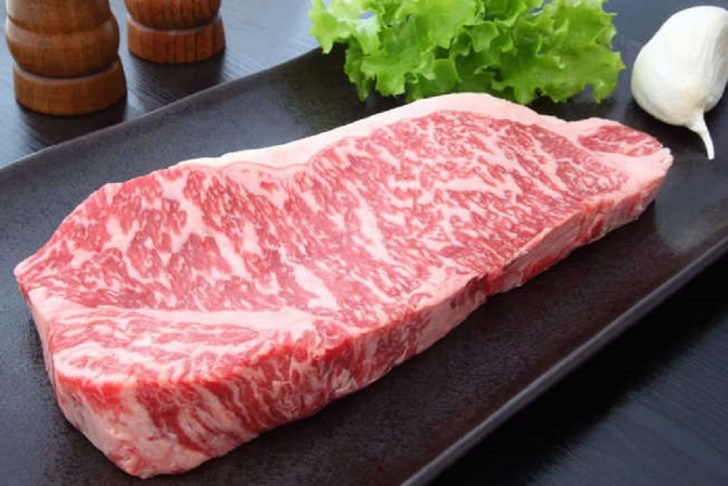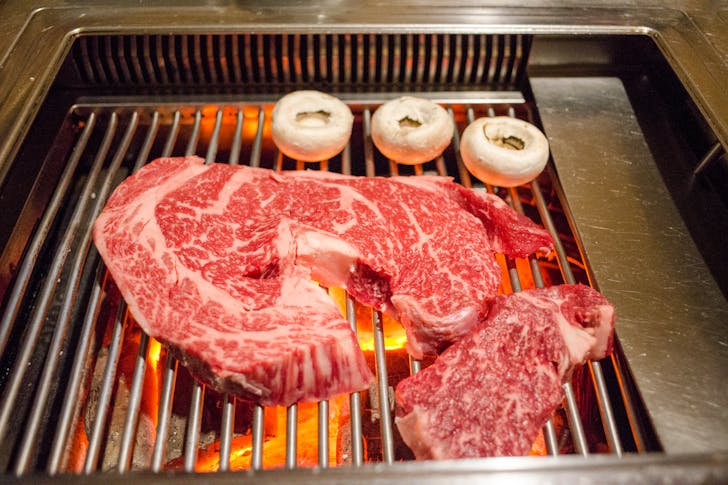Wagyu beef is celebrated for its unmatched marbling, rich flavor, and tender texture, making it a favorite among food enthusiasts worldwide. However, its high fat content often sparks debate about its health benefits. Is Wagyu beef healthy, or should it be reserved solely for special occasions? This comprehensive guide will explore Wagyu beef’s nutritional profile and explore how it can fit into a balanced diet.
Is Wagyu Beef Healthy?
A common concern about Wagyu beef is whether its richness makes it unhealthy. While Wagyu is higher in fat compared to standard beef, it primarily consists of monounsaturated fats (MUFAs). These fats, particularly oleic acid, have been linked to improved heart health and lower cholesterol levels. Additionally, Wagyu beef is a significant source of omega-3 and omega-6 fatty acids, which reduce inflammation and support brain function.
Beyond its fat profile, Wagyu beef is packed with essential nutrients. A 100-gram serving delivers approximately 25 grams of high-quality protein, aiding muscle repair and growth. It also provides about 10% of the daily recommended iron intake, crucial for oxygen transport in the body, and 36% of the recommended daily zinc intake, which supports immune health and wound healing. This nutrient density positions Wagyu as a potentially healthy option, provided it is consumed in moderation.

What Makes Wagyu Beef Unique?
Wagyu beef’s signature marbling sets it apart from other cuts of beef. This marbling, or intramuscular fat, is what gives Wagyu its luxurious texture and buttery flavor. However, the fat content varies depending on the grade of the beef. Higher grades, such as A5 Wagyu, contain more marbling, making them rich in flavor and fat content.
Despite its higher fat levels, Wagyu’s fat composition is largely beneficial. The monounsaturated-to-saturated fat ratio in Wagyu is much higher than in regular beef, making it a healthier choice compared to other fatty meats. This unique balance of taste and nutrition makes Wagyu a premium option for those looking to indulge wisely.
Nutritional Highlights of Wagyu Beef
Wagyu beef stands out nutritionally, offering more than just a delicious experience. Its high-quality protein contains conjugated linoleic acid (CLA), a type of fatty acid associated with improved immune function, fat loss, and lean muscle mass. CLA is present in higher concentrations in Wagyu beef than in standard beef, adding to its health appeal.
Beef is also a rich source of iron, which plays a vital role in the body’s energy production and oxygen transportation. Zinc, another essential nutrient found in Wagyu, supports a strong immune system and promotes healthy skin. This nutrient-rich profile makes Wagyu a valuable addition to diets when eaten in appropriate portions.
How to Enjoy Wagyu in a Balanced Diet
Wagyu beef can be a delightful part of a balanced diet, provided portion sizes are controlled. A serving of 3 to 4 ounces allows you to enjoy its rich flavor without consuming excessive fat or calories. Pairing Wagyu with nutrient-dense sides like leafy greens, roasted vegetables, or whole grains ensures a meal that balances taste and nutrition.
Grilling or pan-searing Wagyu can enhance its natural flavors without requiring added fats. Using Wagyu in recipes like stir-fries, salads, or wraps can stretch its portion size, making it an accent rather than the centerpiece of every meal. This approach helps you savor Wagyu’s unique qualities while maintaining a healthy overall diet.”

Is Wagyu Beef Suitable for Special Diets?
Wagyu beef is compatible with several popular diets, including Keto and Paleo. For those following a Keto diet, its high fat content supports ketosis, the metabolic state where the body burns fat for energy. Its monounsaturated fats also contribute to heart health, a crucial consideration for those on high-fat diets.
Similarly, Wagyu fits the Paleo diet, which emphasizes unprocessed and nutrient-rich foods. Its natural composition and high-quality protein align with Paleo principles, making it an excellent choice for those seeking wholesome meals. However, portion control remains essential, regardless of the dietary plan.
The Role of Wagyu in Athletic Nutrition
Athletes and fitness enthusiasts can benefit from Wagyu beef’s nutrient profile. Its high-quality protein aids muscle recovery, while the oleic acid in its fat supports reduced inflammation after intense workouts. Also, Wagyu conjugated linoleic acid (CLA) may promote fat loss and help build lean muscle.
For athletes, Wagyu’s nutritional benefits, combined with its satisfying flavor, make it an excellent addition to a performance-focused diet. Incorporating Wagyu into post-workout meals or special training day menus can enhance both recovery and dietary enjoyment.




